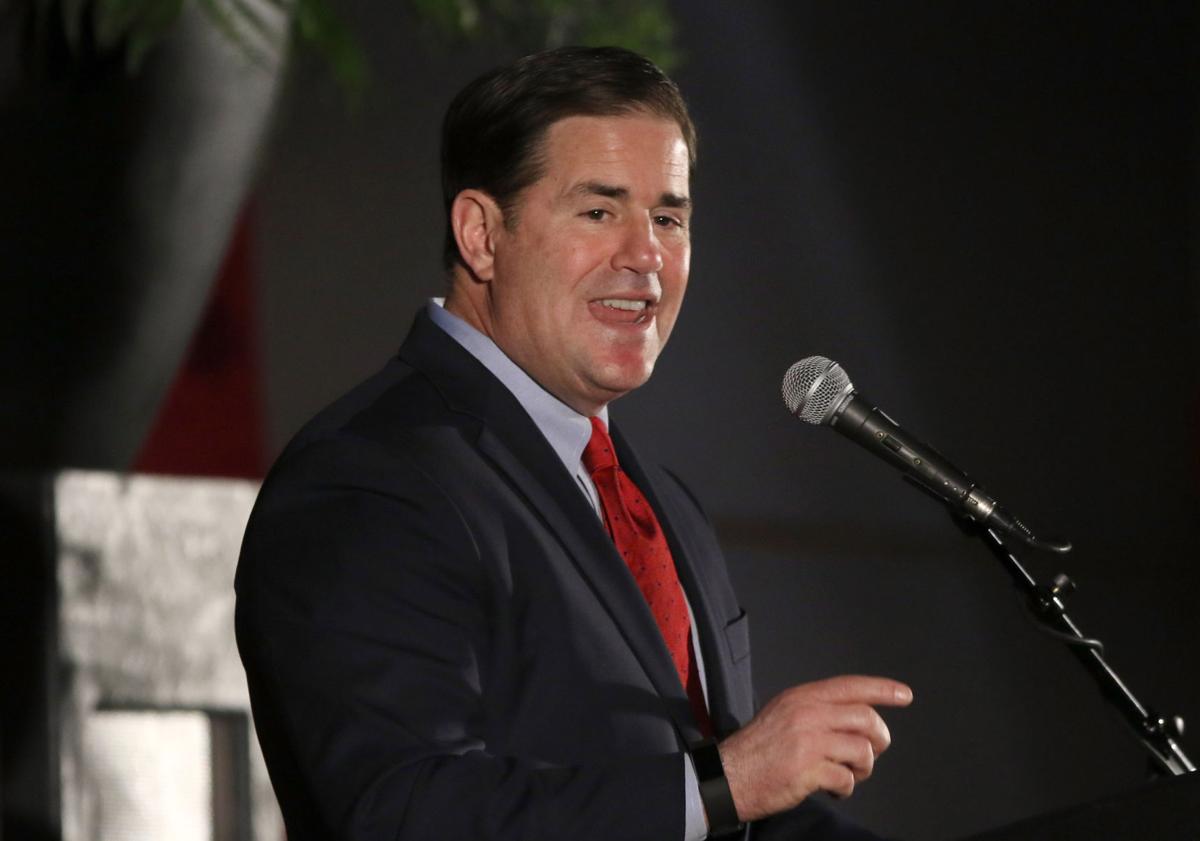PHOENIX — Gov. Doug Ducey signaled his opposition to a new initiative to forbid anonymous funding of political campaigns, saying it would interfere with the ability of people to participate in campaigns without fear.
“I’ve always been a fan of more transparency,” the governor said Wednesday. And Ducey said his own campaigns have always complied with what’s required under Arizona law.
But Ducey said there’s a valid reason to allow people to contribute anonymously to efforts to ensure that some people are elected and others are not.
“I think people have a First Amendment right as well to participate and not be bullied,” he said.
Ducey has been the beneficiary of such campaigns where Arizona voters were never informed of who was contributing to his campaign.
He got elected governor in 2014 with the help of $8.2 million spent by outside groups both supporting his election and running commercials attacking Democrat foe Fred DuVal. That eclipsed the $7.9 million Ducey spent on his own, money that came from disclosed donors.
That wasn’t just a one-way street. DuVal benefited from $2.4 million in independent expenditures, compared to his own $4.3 million campaign.
The initiative, formally launched Wednesday, would add what amounts to a “right to know” provision in the Arizona Constitution.
It would require public disclosure of all “original sources” of money. It is specifically aimed at those who provide more than $10,000 in any two-year election cycle.
It also is designed to address “chain” donations, where a person gives money to an organization that then funnels it to yet another group that ends up buying the attack ads. The measure says the group making the expenditure has the responsibility of finding that original source.
The campaign is being spearheaded by former Attorney General Terry Goddard. He has until July 5 to get at least 225,963 valid signatures on petitions to put the issue on the 2018 ballot.
At least part of the problem with tracing the funds is that many of the groups that put money into these campaigns are established under the federal Internal Revenue Code as “social welfare” organizations. And Arizona law exempts them from having to disclose donors when they make independent expenditures on behalf of or against any candidate.
So, in Ducey’s case, the only information available to the public was that he got money from American Encore, the 60-Plus Association and Conservative Leadership for Arizona. Where they got their money is not listed, though American Encore has its roots in another group that was financed by conservative business owners Charles and David Koch.
Ducey also got help from a political action committee set up by the Republican Governors Association, which tapped a fund financed by a national network of donors.
He did not dispute that those outside funds helped propel him to office but said he did nothing that was not an option for others. “We all follow the same rules,” Ducey said.
The governor’s arguments about the need to shield the names of those seeking to influence the outcome of campaigns mirrors those made by lawmakers who have crafted laws reducing public disclosure in the name of protecting them from being harassed.
During debate on legislation last year to take more information out of the public sphere, House Speaker J.D. Mesnard said the source of the funds paying for advertising for or against candidates is irrelevant. He said it’s about the message.
“If it’s important to you to know who’s behind the message and you don’t know who’s behind the message, then disregard it,” he said. “But if it’s not important to you and you want to focus on the message itself, there’s no harm done.”





